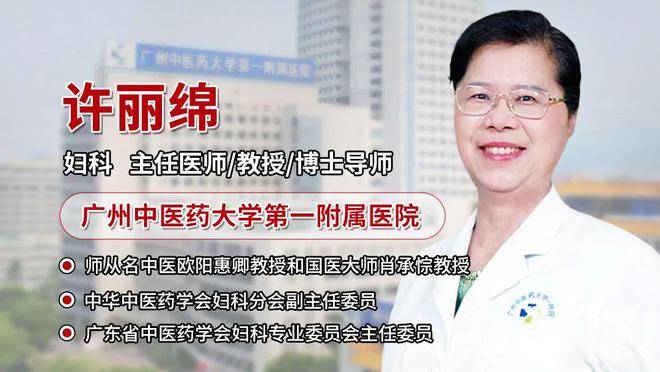There are many female friends in the outpatient department with polycystic ovaries. Most of them start by saying: Director, everyone says this disease cannot be cured, and you have to keep taking hormones to have menstruation.
Dr. Xu Limian has been practicing medicine for many years and does not support inducing menstruation with hormones.
Simply put, polycystic ovaries either have many small follicles that do not grow, or mature follicles that cannot be released. Relying on hormones to maintain hormone levels in the body will eventually lead to ovarian dysfunction. The menstruation that comes is withdrawal bleeding, not a true period.
How should polycystic ovary syndrome be treated correctly?
In Western medical theory, it is a reproductive disorder characterized by high androgen levels, ovulation disorders, and polycystic ovaries. Common symptoms include irregular menstruation, obesity, and hirsutism.
Taking hormones, using nasal sprays, or nebulizers is a form of combat. If menstruation does not come, you make it come, but as soon as you stop the hormones, menstruation stops again.
Traditional Chinese medicine focuses on following the body’s natural rhythms. Simply put, it is about following the body’s natural balance.
In Chinese medicine, polycystic ovaries are actually a constitutional issue. To improve it, one must first adjust the constitution!
Outpatient Case Studies
A while back, Ms. Cai, 28 years old, complained: During my university days, my menstruation would not come for 3 to 4 months. Worried, she went to the hospital for a check-up and found out she had polycystic ovaries. The doctor recommended taking hormones to induce menstruation.
However, after taking hormones for many years, once she stopped, menstruation ceased. Now, her face is full of acne, causing her extreme anxiety.
After seeking treatment in the outpatient clinic, Ms. Cai found Dr. Xu Limian for consultation.
After diagnosing Ms. Cai, Dr. Xu Limian prescribed: Chinese yam, dodder seed, eucommia bark, cyperus, poria, ligustrum, raspberry, xuduan, ginseng, and Chinese raspberry
(Special Note: In Chinese medicine, each individual requires a unique prescription based on their diagnosis, condition, weight, height, and other factors. Each prescription varies based on individual conditions and needs to be tailored accordingly.)
On her second follow-up, Ms. Cai’s acne situation improved, and after three months of follow-up, her menstruation returned on time. She happily shared that she felt much lighter and even lost some weight.
It is well known that polycystic ovary syndrome is often accompanied by acne, hirsutism, irregular menstruation, ovulation disorders, obesity, and insulin resistance, posing serious impacts on many women’s lives: difficulties in conception, changes in body shape, menstrual issues, etc.
Regular care for polycystic ovaries is crucial
To improve polycystic ovaries, besides diagnosis, lifestyle adjustments are also vital. Here are some tips to share, hoping everyone can stick to them.
● Eat “Six More”
Eat more of these 6 fruits: apples, hawthorn, blueberries, cherries, mulberries, kiwi fruit;
Eat more of these 6 vegetables: asparagus, Chinese cabbage, tomatoes, pumpkin, carrots, cucumbers;
Consume more of these 6 whole grains: corn, sweet potatoes, quinoa, black rice, taro, wheat;
Eat more of these 6 seaweed foods: nori, kelp, sea lettuce, wakame, kombu, sea grapes.
● Eat “Six Less”
❌1. Avoid smoking and alcohol;
❌2. Avoid raw and cold foods;
❌3. Avoid fried, fatty, and pickled foods;
❌4. Avoid spicy foods like garlic, onions, and chili peppers;
❌5. Avoid warming and hot-blooded foods like dog meat, lamb, leeks, and peppers;
❌6. Avoid drying and heating foods like ribbon fish, mango, lychee, longan, donkey-hide gelatin, royal jelly;
● Soak your feet before bed
Soak your feet in warm water for 30 minutes before bedtime. The water temperature must be above the acupuncture point Sanyinjiao. You can massage the soles of your feet, which can promote blood circulation and help improve polycystic ovaries.
● Get a good night’s sleep
From 11 pm to 1 am, the gallbladder meridian is active, and the liver detoxifies during this time, accelerating the metabolism process. Therefore, avoid staying up late.
Put your phone away early at night, quickly enter the dream state, which can keep the liver and gallbladder clear, and preserve liver health.
● Frog Pose
Adopt the frog position with your upper body on a mat, relax your hands naturally, place your forehead on the ground, and let your waist stretch naturally. Do this for 5 minutes every day, 4-6 times a week, inhaling deeply every 3 seconds.
● Massage the Liver Meridian
For people with blocked liver meridians and overall blockages who tend to get angry and depressed, it is essential to massage the liver meridian regularly. Before going to bed, bend and open your legs from the thighs to slightly push forward to the knees. This can help clear the liver meridian and balance liver qi.
Chinese medicine emphasizes the unity of man and nature. If someone has polycystic ovary syndrome, the root cause of their condition lies in all aspects of their life. Besides herbal treatments, adjusting lifestyle is crucial.


